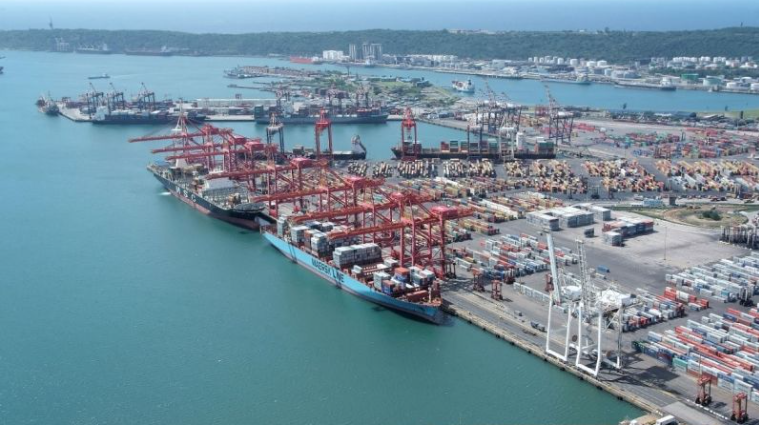

More than a year after South Africa’s freight industry heard in July 2023 that Transnet had awarded a concession tender to International Container Terminal Services Incorporated (ICTSI) to run Pier 2 at the Durban Container Terminal (DCT), that privatisation process has been stopped – for now.
This has emerged after the Durban High Court has ruled in favour of the interdict application lodged by APM Terminals last October.
ICTSI was awarded the privatisation tender by Transnet for DCT Pier 2 for a 25-year partnership, whereby the Philippines concessionaire would acquire 49% of the terminal, with an investment totalling around R11 billion over the duration of the agreement.
However, rival bidder APM Terminals contended that the award process was flawed and that ICTSI did not meet certain solvency requirements stipulated in the tender.
Although South Africa’s long-suffering freight industry is smarting after the ruling, especially as the general consensus is that the Port of Durban is in dire need of much-needed efficiencies that would most likely be ushered in through privatisation, it has come as no surprise that APM Terminals has succeeded with its interdict.
When the matter appeared before Judge Rob Mossop recently, Transnet’s case, presented by Nick Ferreira, received a pounding for what appeared to have been blatant bungling by the state-owned logistics provider.
On September 16, Freight News reported that the ICTSI deal was on shaky ground following the manner in which Judge Mossop ruthlessly picked Transnet’s case apart.
This is after the Sunday Times reported on September 13 “that ICTSI’s bid should have been disqualified because its solvency ratio of 0.24 fell short of Transnet’s solvency ratio requirement of 0.4 as set out in the port and rail operator’s request for quotations (RFQ).
The report in the business section added that “solvency ratios help indicate whether a company will have adequate cash flow to meet its financial obligations over the contract term”.
Business Times wrote: “According to Transnet’s RFQ, a respondent is deemed to have sufficient ‘financial capacity’ when its solvency is equal to or exceeds 0.4 when calculated according to a formula where total equity is used as a numerator and total assets as a denominator.”
The report added that Ferreira said “that as part of meeting the minimum financial criteria, Transnet wanted bidders to demonstrate they had sufficient financial capacity to attract the required funding for the envisaged investments in DCT2”.
“He said Transnet relied on additional considerations, including balance sheet, going concern, and cash in the bag.
“We contend in our heads of argument that if you comply with these financial requirements that is sufficient but not necessary to establish if you have financial capacity. In other words, you can jump through the financial capacity hoop, you have solvency, liquidity and earnings before interest, taxes, depreciation and amortisation requirements and guarantee that you are in if you comply, but you do not have to comply with all of them.”
Mossop then asked: “Where does it say that?”
Ferreira replied: “It does not say that.”
Business Times added, “Ferreira said bidders would qualify provided they could demonstrate that they had the financial capacity and the finances necessary to satisfy the contract.
“But Mossop asked: ‘How would anyone know that from reading the tender documents? How would anyone know that from the wording? How would anyone sitting there know I don’t have to answer those questions as long as I’ve got letters from my bank or whoever? How would anyone know?’”
Reacting to the interdict ruling, Transnet said it “notes the judgement of the KwaZulu-Natal High Court in respect of APM Terminals’ application to seek an interdict in respect of the selection of an equity partner for DCT Pier 2”.
“Transnet wishes to affirm its commitment to the judicial process and is currently evaluating its options.”
Clearly taken aback by the ruling, the parastatal said it remained “committed to concluding the transaction expeditiously in the interest of economic growth and development”.
An executive-level source in Durban, working in the freight forwarding industry, said the ruling was a major blow for industry.
“This port has been poorly run for years and the ITCSI deal meant that logistics service providers could expect improvement.
“This process now appears to have been upended, and we’re most likely going back to square one. It means more waiting to see change at the port, more frustration, and more loss of revenue through the government’s ongoing ineptitude to get its house in order.”
The source, who spoke on condition of anonymity, said if one considered how important the awarding of a concession was at the country’s leading port, stricken by years of capacity shortfalls and high-level corruption, Transnet’s executive would have made sure that the tender process was flawlessly concluded.
Source: https://www.freightnews.co.za/article/court-rules-favour-apm-t-durban-concession-tender-process
.



